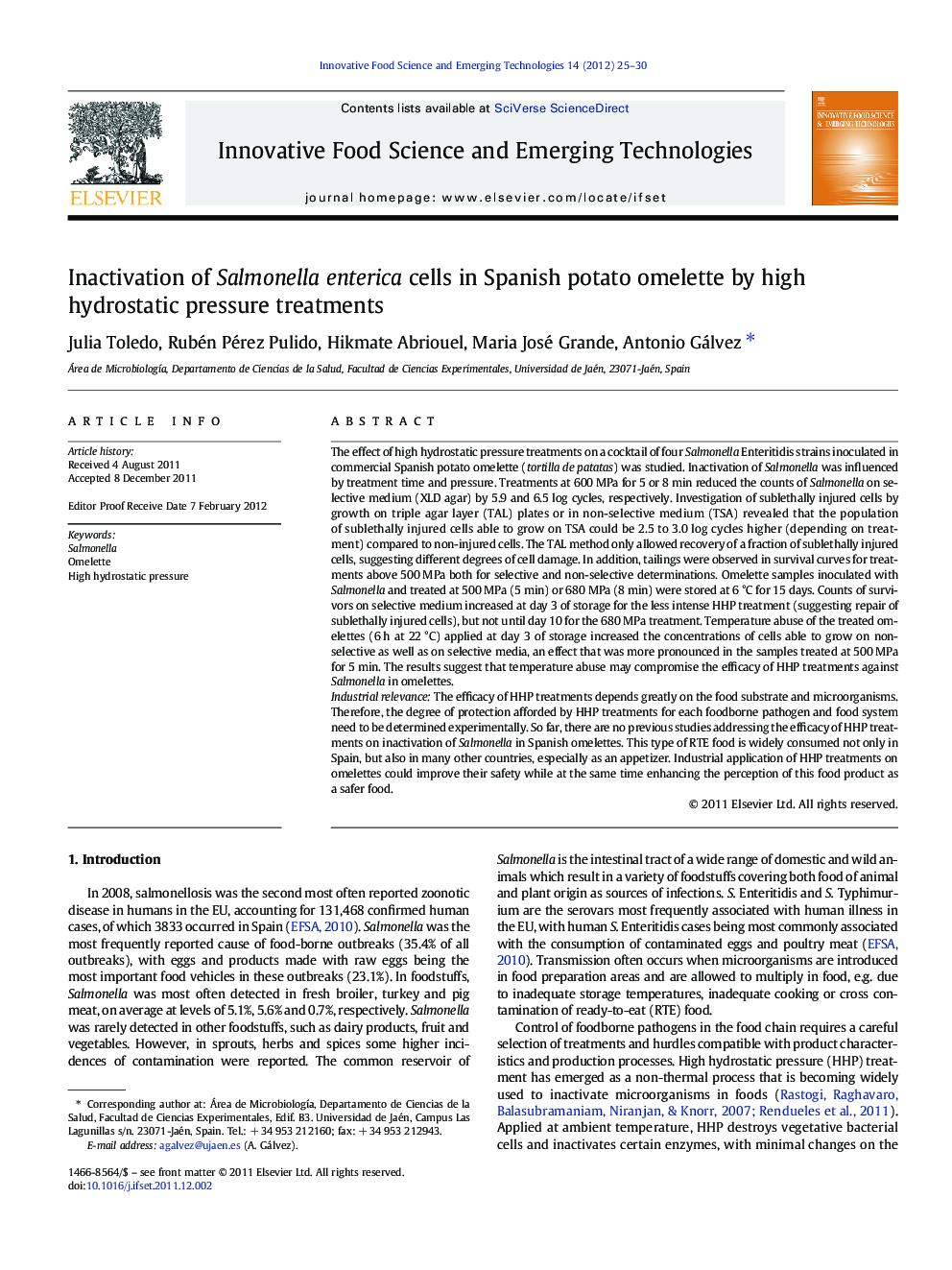| کد مقاله | کد نشریه | سال انتشار | مقاله انگلیسی | نسخه تمام متن |
|---|---|---|---|---|
| 2086910 | 1545552 | 2012 | 6 صفحه PDF | دانلود رایگان |

The effect of high hydrostatic pressure treatments on a cocktail of four Salmonella Enteritidis strains inoculated in commercial Spanish potato omelette (tortilla de patatas) was studied. Inactivation of Salmonella was influenced by treatment time and pressure. Treatments at 600 MPa for 5 or 8 min reduced the counts of Salmonella on selective medium (XLD agar) by 5.9 and 6.5 log cycles, respectively. Investigation of sublethally injured cells by growth on triple agar layer (TAL) plates or in non-selective medium (TSA) revealed that the population of sublethally injured cells able to grow on TSA could be 2.5 to 3.0 log cycles higher (depending on treatment) compared to non-injured cells. The TAL method only allowed recovery of a fraction of sublethally injured cells, suggesting different degrees of cell damage. In addition, tailings were observed in survival curves for treatments above 500 MPa both for selective and non-selective determinations. Omelette samples inoculated with Salmonella and treated at 500 MPa (5 min) or 680 MPa (8 min) were stored at 6 °C for 15 days. Counts of survivors on selective medium increased at day 3 of storage for the less intense HHP treatment (suggesting repair of sublethally injured cells), but not until day 10 for the 680 MPa treatment. Temperature abuse of the treated omelettes (6 h at 22 °C) applied at day 3 of storage increased the concentrations of cells able to grow on non-selective as well as on selective media, an effect that was more pronounced in the samples treated at 500 MPa for 5 min. The results suggest that temperature abuse may compromise the efficacy of HHP treatments against Salmonella in omelettes.Industrial relevanceThe efficacy of HHP treatments depends greatly on the food substrate and microorganisms. Therefore, the degree of protection afforded by HHP treatments for each foodborne pathogen and food system need to be determined experimentally. So far, there are no previous studies addressing the efficacy of HHP treatments on inactivation of Salmonella in Spanish omelettes. This type of RTE food is widely consumed not only in Spain, but also in many other countries, especially as an appetizer. Industrial application of HHP treatments on omelettes could improve their safety while at the same time enhancing the perception of this food product as a safer food.
► Inactivation of Salmonella in omelettes was influenced by treatment time and pressure.
► Highest inactivation of Salmonella was observed at 680 MPa, 8 min but tailing effects were observed in survival curves.
► A fraction of surviving cells after treatments was sublethally injured and unable to grow on selective media.
► Repair of sublethal damage was observed during refrigeration storage and during temperature abuse.
Journal: Innovative Food Science & Emerging Technologies - Volume 14, April 2012, Pages 25–30